Namrata Acharya & Ishita Ayan Dutt in Kolkata
About a week before the historic Assembly elections, Trinamool Congress supremo -- and now the chief minister of West Bengal -- Mamata Banerjee displayed 98 of her paintings at Kolkata's Galerie 88.
In four days, the exhibition, titled 'Twenty five hours a day', which painters from her cultural camp described as a 'reflection of herself', fetched a whopping Rs 4 crore (Rs 40 million).
. . .
With Buddha out, Mamata is the new Brand Bengal
Image: Mamata Banerjee's initial.Buyers mostly were industrialists like Harsh Neotia, Sanjiv Goenka, Jagmohan Dalmiya, Rishi Agarwal (ABG group) and Jay Mehta (co-owner of Kolkata Knight Riders).
After this, it was hardly a surprise when Banerjee got a warm welcome from industry after the election results were announced on May 13, in spite of her role in driving Tatas' Nano factory out of Bengal.
RPG Enterprises Chairman Emeritus R P Goenka, who was on his way to Badrinath, took time out to comment: ". . . this is not the time to ask what she (Mamata Banerjee) can do for us, but to tell her what we can do to help her regain Bengal's lost glory."
. . .
With Buddha out, Mamata is the new Brand Bengal
Image: A painting by Mamata Banerjee.Gita Piramal had mentioned in her book, Business Maharajas, that the Left Front government in the state went out of its way in 1991 to help comrade Goenka acquire CESC.
But, those were different times.
The Left Front was well-entrenched in the seat of power, with no strong Opposition looming.
The Assembly elections may have been the latest of the battles lost by the Left Front, but after three successive electoral defeats (panchayat, Lok Sabha and civic polls), the writing on the wall was for all to see. Industrialists were the first to read it.
Often referred to as fairweather birds, industrialists are said to be close only to the chair (the administration).
. . .
With Buddha out, Mamata is the new Brand Bengal
Image: Former West Bengal Chief MInister Buddhadev Bhattacharjee.A 34-year Left Front regime may have helped conjure perceptions about proximity of some industrialists to a particular party, but the reality is quite different.
"Whichever political party is in power, industrialisation will continue," Buddhadeb Bhattacharjee's once-upon-a-time poster boy Prasoon Mukherjee had told Business Standard soon after Mamata Banerjee's success in the Lok Sabha elections.
Mukherjee happens to be a promoter of New Kolkata International Development, the 51 per cent partner with investment from the Salim Group of Indonesia in the Nayachar PCPIR project.
. . .
With Buddha out, Mamata is the new Brand Bengal
That Banerjee is opposed to the PCPIR project is another matter.
There will be other projects.
Although he was initially sceptical, Jyoti Basu started befriending Marwaris from the mid-1990s.
The land largesse to many of his Marwari friends that followed is a well-known story. The popular joke was that the 'M' in Communist Party of India-Marxist actually stood for Marwaris.
If Basu's policy was insular and dependent on local industrialists, Buddhadeb Bhattacharjee put his bet on investors from outside Bengal.
. . .
With Buddha out, Mamata is the new Brand Bengal
Wipro, Infosys, JSW Steel, Cognizant, TCS and Salim Group, among many others, followed.
But Singur and Nandigram became the turning points for Bhattacharjee and the Left Front.
The rest, as they say, is history.
As a new chapter in the histrory of Bengal unfolds, industrialists are betting on Brand Bengal.
"We are businessmen who believe in Bengal. We will continue to invest in Bengal," Ravi Todi, joint managing director, Magma Fincorp Ltd, says.
. . .
With Buddha out, Mamata is the new Brand Bengal
Image: Amit Mitra.Photographs: Reuters
Banerjee's aide and Federation of Indian Chambers of Commerce and Industry's former secretary-general, Amit Mitra, is an added assurance for businessmen.
"Business is done when they feel that something is viable," Mitra says.
He would know, having been one of the most successful industry lobbyists.
"Mamata Banerjee's manifesto and vision document together fulfil the parameters completely," he adds.
If the business community is at ease with Banerjee, as much as it was with the Left, it's the culmination of a carefully-nurtured relationship over the past few years.
It may well be a stamp on her bid to shed an anti-industry tag having borne fruit.
. . .
With Buddha out, Mamata is the new Brand Bengal
Image: A street in Kolkata.Photographs: Reuters
Banerjee was probably the first railway minister to reach out to industrialists.
At her first interaction with industry, a little more than a year after the Nano pullout from Singur, Banerjee told investors: My vision 2020 cannot be achieved without you. . . please help me.
A select 2,000 people -- industrialists, representatives from chambers of commerce and consulate -- received greeting cards last festive season.
That was later followed up by a lavish dinner called 'adda', along the lines of a Bijoya Sammelani, exclusively for corporate bigwigs.
Banerjee knows there is no backing out from industrialisation.
. . .
With Buddha out, Mamata is the new Brand Bengal
Image: Mamata Banerjee.Photographs: Reuters
'Ma, Mati Manush' apart, industrialisation found equal space in her pre-election speeches. Trinamool Congress' vision document released with the manifesto went down well with industrialists.
"The manifesto of the new government is quite comprehensive. If implemented, it would lead to an all-round development in infrastructure, agriculture and industry.
"It is quite encouraging. We will definitely go the new government way with new proposals in the infrastructure sector," Srei Infrastructure Finance chairman and managing director Hemant Kanoria had said.
The mood is upbeat. Expectations are running high.
. . .
With Buddha out, Mamata is the new Brand Bengal
Image: Mamata addressing a rally at Singur.Photographs: Reuters
Though Banerjee's first Cabinet decision of returning 400 acres at Singur to the 'unwilling farmers' is being seen by some industrialists who until recently were heaping praises, as anti-industry, it's still early days.
West Bengal's new commerce and industry minister Partha Chatterjee recently said: "Six-seven global leaders have evinced interest in setting up projects."
One big project is sure to reinforce industrialists' faith in the universal 'Didi'. Business and politics are intrinsically linked, after all.
. . .

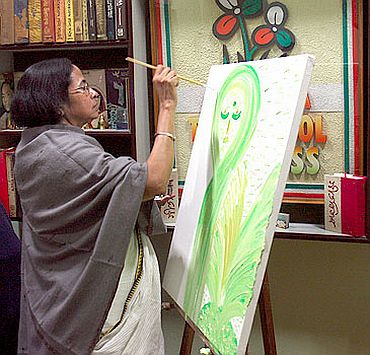
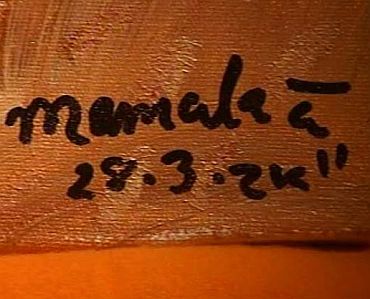
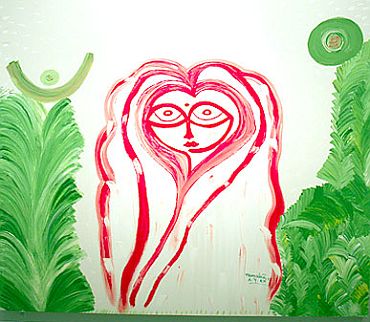
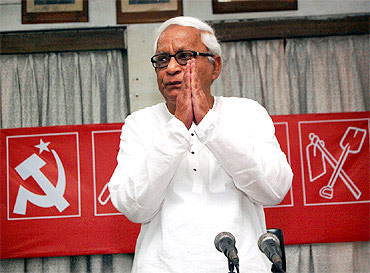
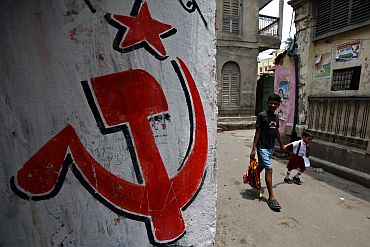
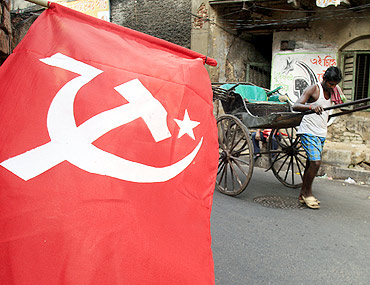
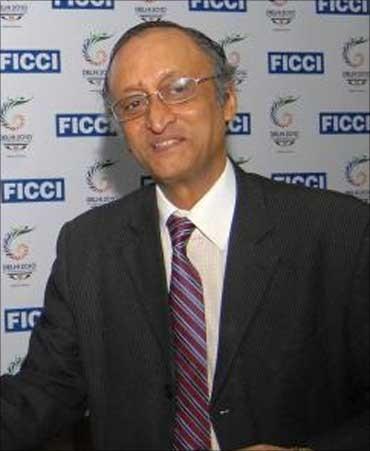
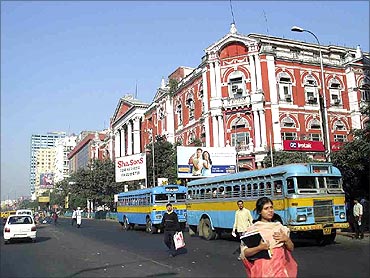
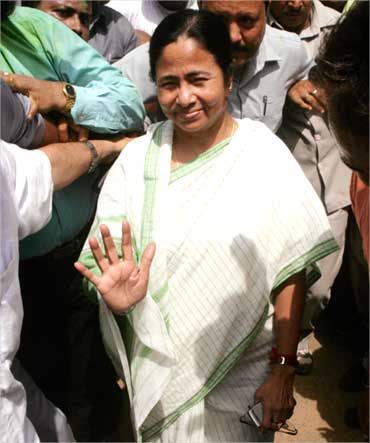
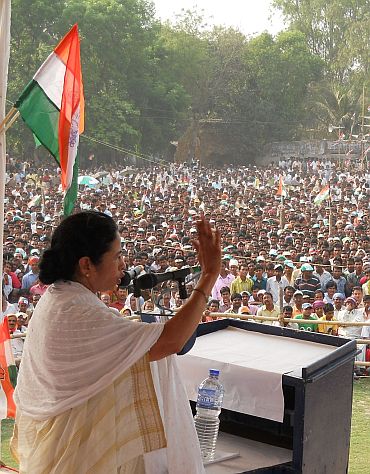

article